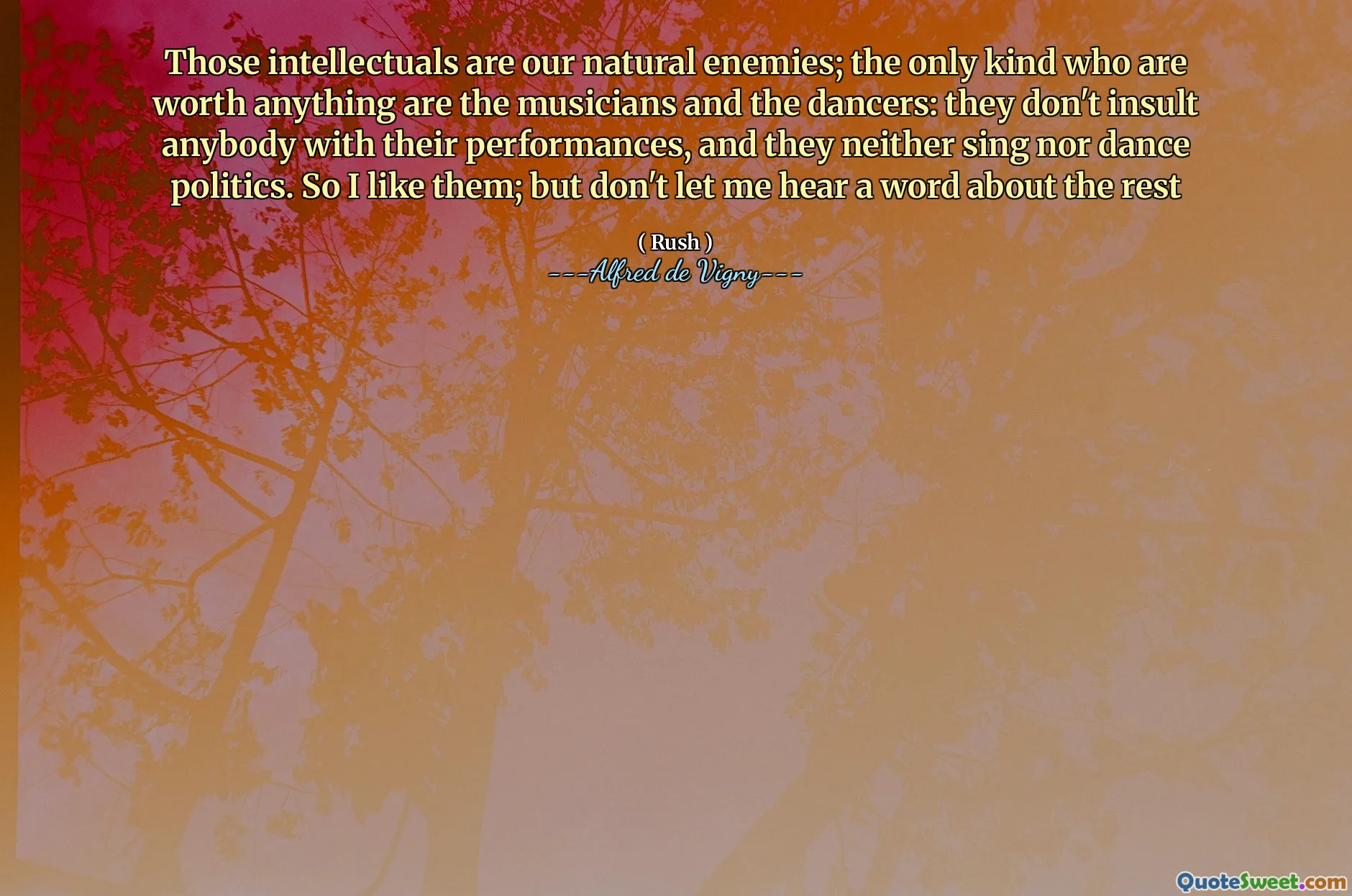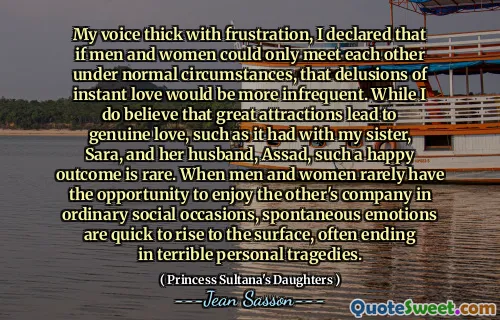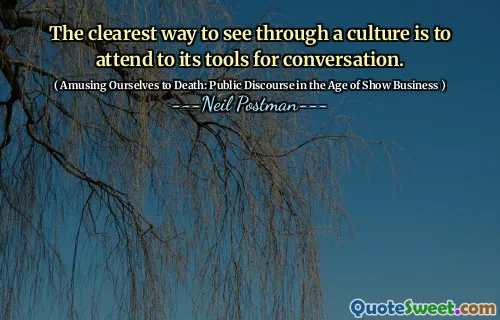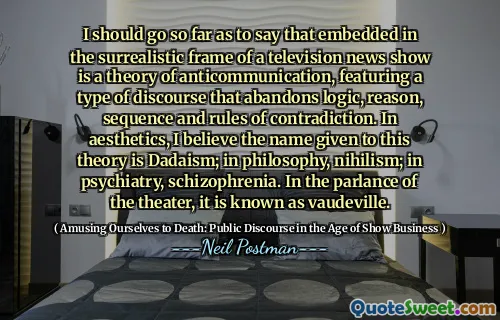
Those intellectuals are our natural enemies; the only kind who are worth anything are the musicians and the dancers: they don't insult anybody with their performances, and they neither sing nor dance politics. So I like them; but don't let me hear a word about the rest
This quote presents a provocative perspective on the values and perceptions associated with different cultural figures. The author dismisses intellectuals as enemies, suggesting that their pursuits and attitudes might be disconnected or even harmful in some way. In contrast, musicians and dancers are elevated, seen as pure expressions of art that do not insult or interfere with societal or political issues.
The admiration for musicians and dancers highlights a yearning for art forms that are seemingly free from the contentious, divisive nature often found in politics and intellectual debates. Such art forms are perceived as authentic, unpretentious, and incapable of igniting conflict—they do not “insult” but rather provide an unifying and purely aesthetic experience. This perspective echoes a romantic idealization of art as a sanctuary from the complexities and disputes of ideological conflicts that often dominate human discourse.
At the same time, the quote can be interpreted as a critique of the role of intellectuals and their influence, perhaps suggesting that their pursuits sometimes lead to or exacerbate division. It raises questions about the purpose of different social roles and how cultural value is assigned. While it is an oversimplification to dismiss all intellectuals or to elevate only musicians and dancers, the sentiment captures a longing for purity in art and a desire to see it as a force that can transcend conflict.
Overall, this reflection invites us to think about the nature of art, society, and conflict. It provokes a dialogue on whether true art should be detached from or engaged in society, and whether certain art forms inherently carry more“innocence” or “purity” than others.
— Rush





